Media Urged to Champion Nutrition Agenda Amid Surge in Diet-related Non-Communicable Diseases (NCDs)
1st September 2025
1st September 2025
Senior editors and nutrition media champions met in Nairobi on Friday for a Media Roundtable on Nutrition Education and Advocacy, jointly hosted by the Ministry of Health and the Global Alliance for Improved Nutrition (GAIN) Kenya.
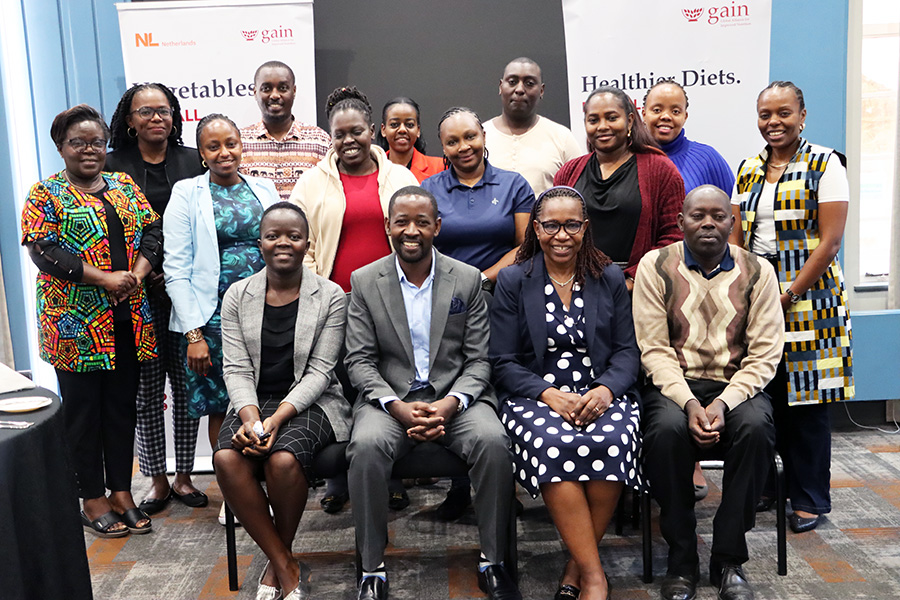
The meeting shed light on Kenya’s mounting nutrition challenges, with undernutrition, micronutrient deficiencies, and a marked increase in the consumption of processed, fatty, salty, sugary, and less nutritious foods contributing to rising overweight and obesity rates across the country.
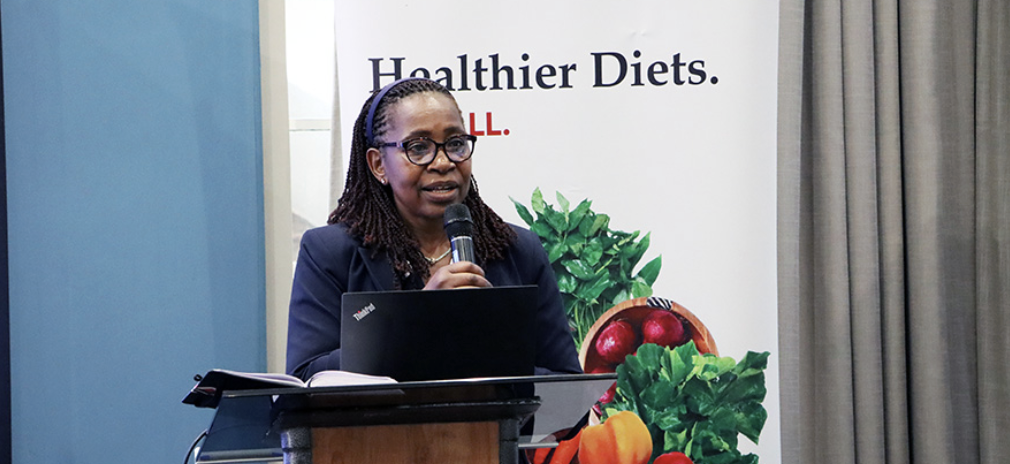
Veronica Kirogo, Head of the Division of Nutrition and Dietetics at the Ministry of Health
“According to the 2022 KDHS, 18 percent of children under five are stunted, 10 percent are underweight, three percent are overweight, and 42 percent of pregnant women experience iron deficiency anaemia,” said Madam Veronica Kirogo, Head of the Division of Nutrition and Dietetics at the Ministry of Health. “This translates into an annual loss of Ksh 373.9 billion, or 6.9 percent of our GDP as per the Cost of Hunger in Africa Study of 2019.”
Madam Ruth Okowa, GAIN Kenya Country Director, expressed concern over the rising burden of diet-related non-communicable diseases (NCDs) such as diabetes, hypertension, and cardiovascular diseases. She observed that food consumption patterns in Kenya have been greatly influenced by urbanisation, economic growth, and westernisation of diets, leading to increased consumption of highly processed and less nutritious foods.
A recent study conducted by the Access to Nutrition Initiative (ATNI) revealed that 90% of packaged food and beverage products in Kenya would require health warning labels under the newly released Kenya Nutrient Profile Model (KNPM) and three other models. Ms. Okowa called for stronger partnerships with the media to amplify nutrition as a national priority.
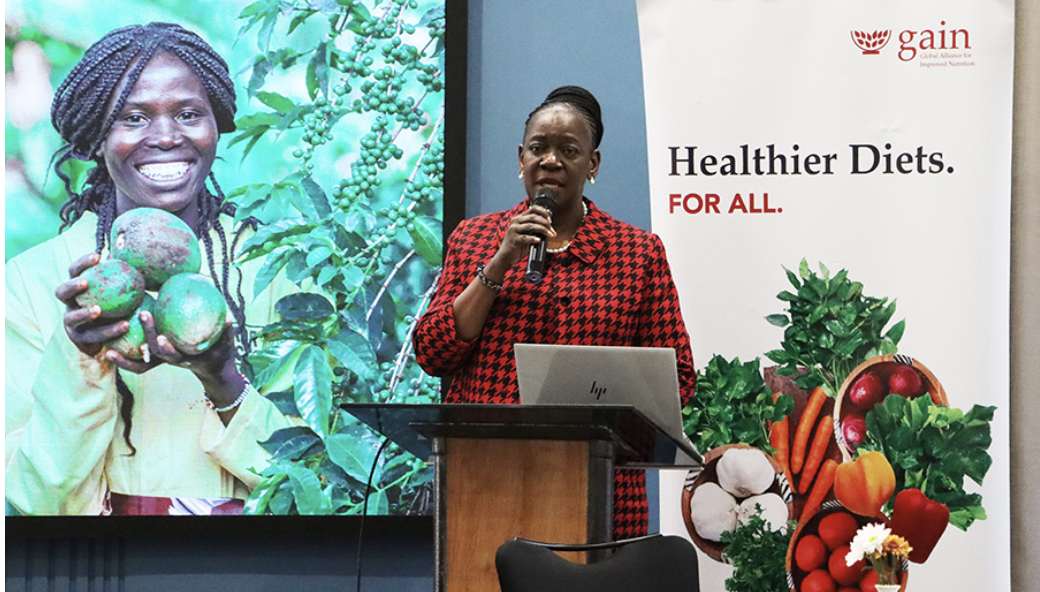
Ruth Okowa, GAIN Kenya Country Director
GAIN Kenya reaffirmed its commitment to supporting both national and county governments to implement nutrition-related policies and frameworks that improve access to healthier diets. Through the CAtalyzing Strengthened policy aCtion for heAlthy Diets and resiliencE (CASCADE) project and working with the Ministries of Health, Agriculture and other partners, GAIN has been instrumental in catalysing implementation of food safety and fortification policies and advancing the Kenya Nutrient Profile Model (KNPM) to promote clear food labelling.
Moreover, GAIN is supporting counties such as Nairobi, Mombasa, Nakuru, Nyandarua, Machakos and Kiambu to embed food safety and nutrition in their legislative agendas. These efforts aim to create an enabling environment for healthier diets while reducing the burden of foodborne diseases and malnutrition.
In parallel, GAIN is driving demand creation initiatives to make healthy eating a social norm. Through our Vegetables for All project, implemented under the FoodFiti brand, GAIN has reached over one million urban and peri-urban consumers and trained more than 10,000 mama mbogas on food safety, business skills and proper handling of vegetables. This approach not only improves access to fresh, safe produce but also strengthens the livelihoods of small-scale vendors who are at the heart of Kenya’s food supply chain.
Madam Veronica Kirogo emphasised the critical role of the media: “We have made progress — stunting has declined from 26 percent in 2014 to 18 percent in 2022 — but we cannot afford to slow down. The media can bridge the gap between policy and practice by keeping nutrition visible in public discourse and countering the myths and misinformation that undermine good feeding practices.”
Representing the Kenya Editors Guild, Madam Millicent Awuor highlighted some of the challenges editors and journalists face when covering nutrition stories, including limited access to timely and reliable data, commercial pressures that favour trending content over in-depth reporting, and long protocols to secure expert spokespersons from partner organizations or government, which often delay breaking or developing nutrition news. She underscored the need for continuous capacity building and stronger collaboration with nutrition actors to ensure accurate, timely, and impactful reporting.
“This engagement opens a new chapter for responsible journalism in health and nutrition. Editors are gatekeepers of public information, and we are committed to ensuring that accurate, evidence-based nutrition messages reach every Kenyan household,” she said.
“Kenya’s nutrition story can change – but only if it is told,” Ms. Okowa concluded. “We urge the media to partner with us and the Ministry of Health to challenge inaction, drive investment, and champion solutions already within our reach.”
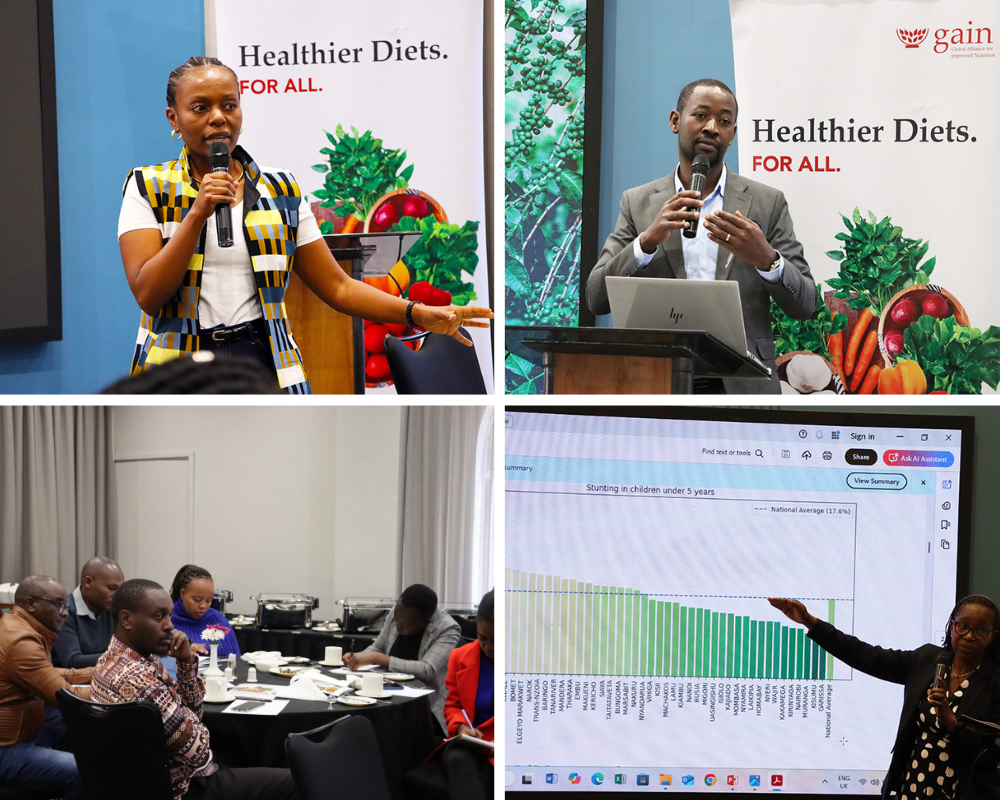
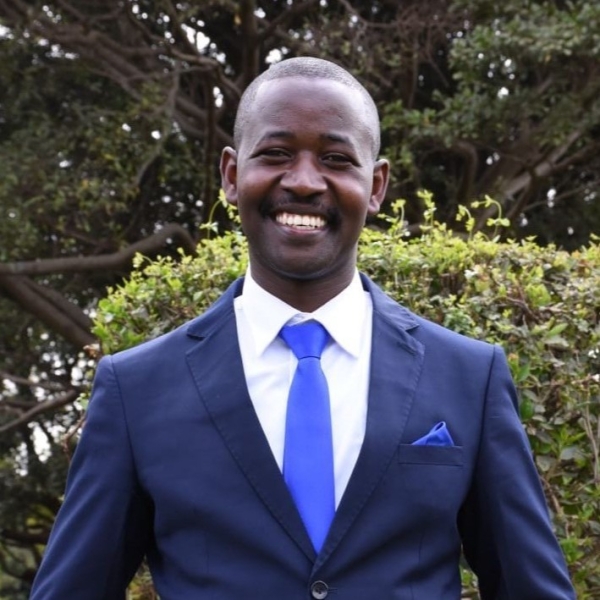
Communications Manager